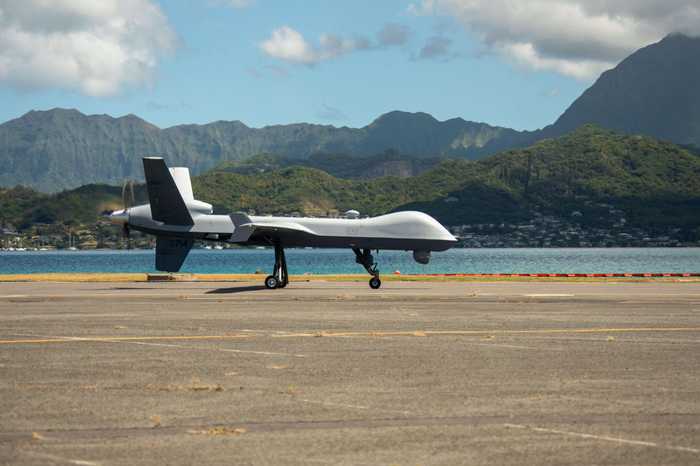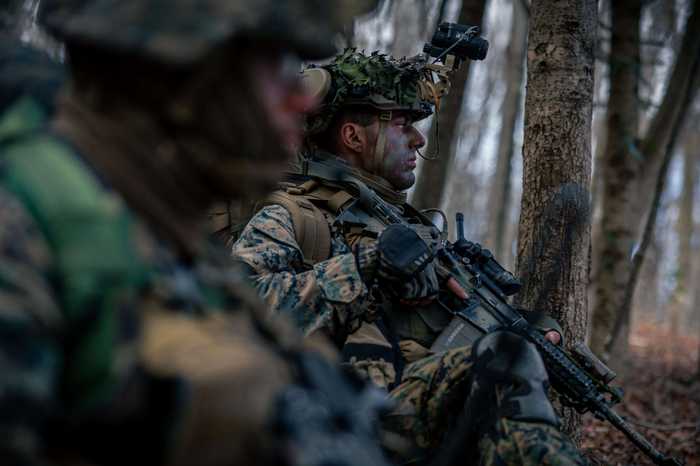Published 20:30 IST, January 1st 2024
U.S. Marine Corps training 100 pilots for cutting-edge MQ-9 Reaper drone program
The Corps leased the MQ-9 in 2018 and secured funding for its purchase in 2020. It is committed to integrating the advanced drone despite earlier challenges.
- Defence
- 2 min read
Arlington County: The United States Marine Corps has achieved a significant milestone as it successfully trains 100 pilots for the MQ-9 Reaper, signaling a strategic push to bolster its drone program for extended reach and enhanced reconnaissance capabilities. The Corps, which initially leased the MQ-9 Reaper in 2018, secured funding for the drone's purchase in 2020, coinciding with the establishment of the Reaper military occupational specialty of 7318.
In a notable development outlined in the 2022 aviation plan, the Marine Corps acknowledges training challenges, having achieved only 38 of the required 68 pilots. Despite this, the Corps remains committed to the integration of the MQ-9 Reaper, distinguishing itself as the first group five drone operator.
Operational units and MQ-9 Reaper’s capabilities
Originally fielded to the U.S. Air Force in 2007, the MQ-9 Reaper played a pivotal role in global operations, notably during the wars in Iraq and Afghanistan. The Marine Corps' adoption of this advanced drone signifies a leap into group five capabilities, surpassing the previous reliance on group three drones like the RQ-21A Blackjack.

Presently, three operational units handle the MQ-9 Reaper – VMU-1 in Yuma, Arizona; UX-24 at Naval Air Station Patuxent River, Maryland; and VMU-3 at Marine Corps Air Station Kaneohe Bay, Hawaii. VMU-1, the pioneer squadron, commenced Reaper operations in 2018, providing intelligence, surveillance, and reconnaissance support in U.S. Central Command.

The Reaper's deployment extends to a diverse range of operations, including coastal and border surveillance, weapons tracking, embargo enforcement, humanitarian/disaster assistance, peacekeeping support, and counter-narcotic operations. Plans are underway to establish the MQ-9A Fleet Replacement Squadron in Cherry Point, North Carolina, showcasing the Marine Corps' commitment to expanding drone capabilities.
Former Commandant Gen. David Berger's question on exploring options beyond commissioned officers for Reaper pilots reflects the Marine Corps' adaptive stance. Despite challenges in meeting the required number of fixed-wing pilots, the Corps maintains its commitment to utilizing commissioned officers for drone operations.
Updated 20:30 IST, January 1st 2024